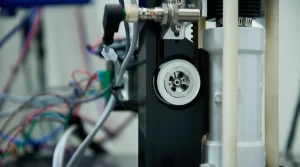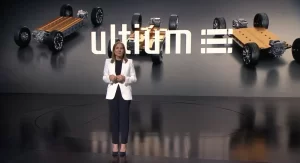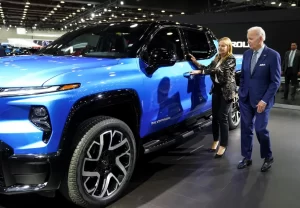
Gold prices could break an all-time high in 2023 and the outlook for “every single metal on the periodic table” is incredibly bullish, which could be very good for the junior exploration sector.
Those were some of the prognostications Monday at the Vancouver Resource Investment Conference, which followed on the heels of last week’s Association of Mineral Exploration (AME) Roundup conference, attended by close to 6,000 people from around the world.
Many base metals, especially critical minerals and battery metals, are riding the energy transition wave, while gold could get a boost from economic upheaval and uncertainty and a general under-investment in new production.
“I don’t think there’s been a more interesting time than right now for mining, and mining metals, in my entire career,” said Ross Beaty, founder of both Equinox Gold (TSX, NYSE: EQX) and Pan American Silver (TSX: PAAS).
“There are synchronous bullish conditions for virtually all metals … including precious metals, including base metals, including ferrous metals, non-ferrous metals, rare earth elements. Just about every single metal on the periodic table is in a good place right now, where people want them, demand is increasing, and supply is not increasing, by and large.”
There has been a general under-investment in new supply for many metals, including gold, and increased demand, including from a number of central banks, which have been buying larger quantities of gold.
“The dearth in new discoveries, and the necessity of mining companies to replace their reserves is real, and I think we’re going to see a generally a pretty good year,” said Brent Cook, exploration analyst for Exploration Insights.
“I agree that we’re entering into a reliable commodities moment,” said Gwen Preston, publisher of Resource Maven. “There are some that are better than others. I really love copper and I really love silver, which I consider a base metal, and I like gold.”
In 1980, gold prices soared to above $800 per ounce in response to a sequence of economic trends that sound eerily familiar today: an energy crisis, high inflation, rising interest rates and recession.
But a major rally in gold prices expected in 2022 didn’t happen the way some had expected. Lobo Tiggre, CEO of Louis James LLC research newsletter, said investors generally seemed to have confidence in the Federal Reserve System in the US to address things like inflation. As that confidence wanes, people could return to the old safe haven that is gold, pushing up its price.
“Team Transitory has become Team Soft Landing,” Tiggre said. “I think that’s going to blow up. I do think that confidence will go away. And I do think that will be a big boost for gold this year.
“I’m happy to go on the record and say, ‘Yes, I think we’re going to see higher gold prices this year — significantly higher gold prices.’ I think a new nominal all-time high is an easy target to hit.”
Rick Rule of Rule Investment Media noted that the current market share of gold relative to all other assets in the US is below one half of one per cent, whereas the four-decade mean has been two per cent.
“I believe that gold will revert to the mean…which will result in a four-fold increase in market share and an increase in demand,” he said. “I don’t think the World Gold Council needs to spend a dime to cause that to occur. I think it’s going to happen all by itself.”
As for how ordinary investors can own gold, ETFs are one way, though Rule said he personally owns physical gold, not to mention investments in gold exploration and mining companies.
“I think anybody who is concerned about maintaining their purchasing power needs to own the real thing,” he said. “They need to own some gold.
“If you are a speculator and can afford financial and psychological risk, then as a speculation – not insurance – work real hard and buy some juniors.”





